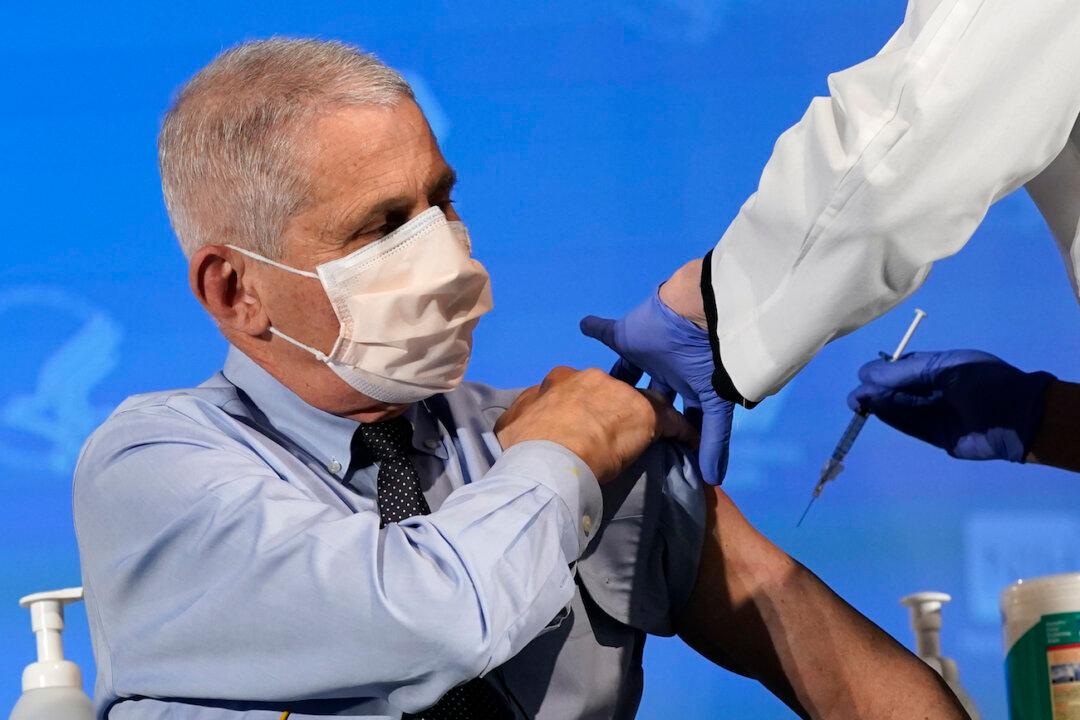Dr. Anthony Fauci, head of the National Institute of Allergy and Infectious Diseases, said that to achieve herd immunity against COVID-19, 90 percent of the population would need to be vaccinated.
In an interview published Thursday, Fauci acknowledged that he had gradually increased his estimates from earlier in the year when he said that around 60 or 70 percent of the population would need to be vaccinated to achieve herd immunity.




